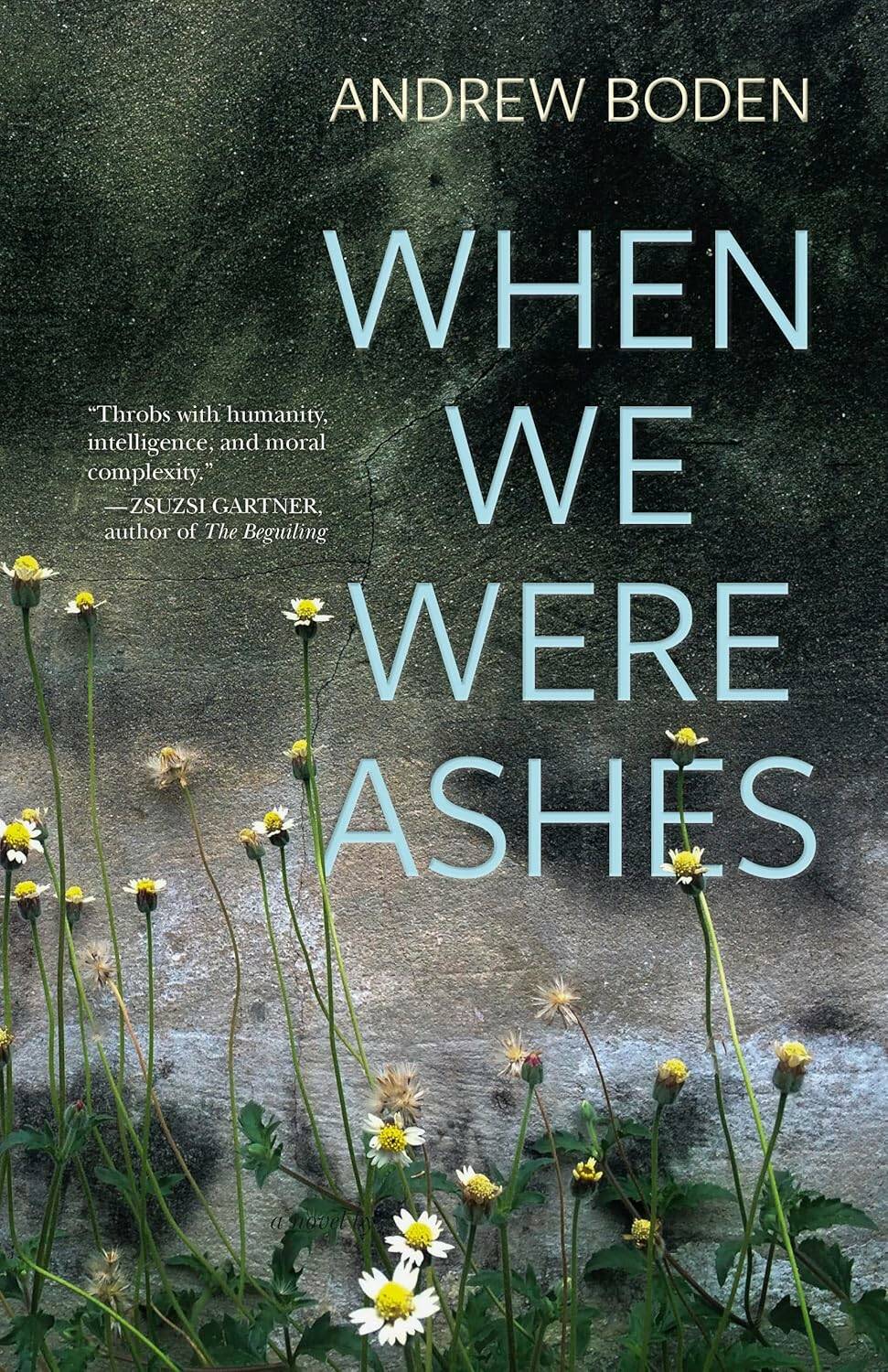Humanity permeates moving wartime debut novel
Advertisement
Read this article for free:
or
Already have an account? Log in here »
To continue reading, please subscribe:
Monthly Digital Subscription
$0 for the first 4 weeks*
- Enjoy unlimited reading on winnipegfreepress.com
- Read the E-Edition, our digital replica newspaper
- Access News Break, our award-winning app
- Play interactive puzzles
*No charge for 4 weeks then price increases to the regular rate of $19.00 plus GST every four weeks. Offer available to new and qualified returning subscribers only. Cancel any time.
Monthly Digital Subscription
$4.75/week*
- Enjoy unlimited reading on winnipegfreepress.com
- Read the E-Edition, our digital replica newspaper
- Access News Break, our award-winning app
- Play interactive puzzles
*Billed as $19 plus GST every four weeks. Cancel any time.
To continue reading, please subscribe:
Add Free Press access to your Brandon Sun subscription for only an additional
$1 for the first 4 weeks*
*Your next subscription payment will increase by $1.00 and you will be charged $16.99 plus GST for four weeks. After four weeks, your payment will increase to $23.99 plus GST every four weeks.
Read unlimited articles for free today:
or
Already have an account? Log in here »
Hey there, time traveller!
This article was published 12/10/2024 (385 days ago), so information in it may no longer be current.
B.C. author Andrew Boden’s debut novel is a heartbreaking story about a survivor of one of humanity’s lowest moments.
Boden explores themes of loyalty, complicity and shame in this short but beautifully-written novel about a young man who survived Aktion T4, the Nazis’ attempt to exterminate all people with disabilities.
Readers may be reminded of the 2022 short film, Forgive Us Our Trespasses, available on Netflix, which covers the start of the extermination campaign.

When We Were Ashes
The novel is told by a survivor of the Aktion T4 program, in two parallel narratives.
In 1940, 13-year-old Rainor and his friends at a bleak but loving institution learn they are to be transported to a remote “hospital,” run by the unknown Dr. Lutz.
“The Führer wanted us to be cared for. We were as German as any normal child and so, six months before twenty British Bombers harassed our city for the first time, he moved us to the safety of the Trutzberg Hospital,” Rainor tells us.
In 1953 West Germany, Rainor, now 26, traumatized and living in a home for “broken unemployables,” is searching for Emmi, his teenage love from the institution.
Between Rainor’s storylines lie diary excerpts from Berger, the conflicted bus driver who transported the disabled children to the extermination sites.
The novel makes use of a gorgeous, lyrical prose that contrasts with the ugly subject matter.
As one example, Boden writes, “The Reich was clearing the world of monsters, ferreting out the trolls under the bridges and the dwarves in the mountains and the three-headed hounds at the gate to Hades.”
Boden wisely avoids depicting any violence or graphic details, focusing instead on the aftermath for the survivors and perpetrators.
The novel’s true strength lies in its character complexity.
Rainor and the children of the institution are beautifully written as whole, real individuals. Boden refers to their disabilities in passing or not at all, letting readers see the children as little people with distinct personalities and emotions.
Boden also avoids portraying characters are purely good or evil, instead seeing them as individuals struggling to survive in a brutal regime.
Berger, the bus driver, hates his role in the Nazi regime, but accepts it to protect his pregnant wife and two children.
“The regime had burnt out my insides and left ash… but there was Suzanne and the children and a child on the way and the four hundred extra marks a month to get through the war within the war,” Berger mourns.
Emmi, Rainor’s love interest, spends her free time knitting a scarf in Germany’s colours for the Führer and speaks of her desire for him to cure her and marry her to an SS officer.
Rainor is a sensitive and perceptive narrator. Other characters comment on bone spurs, his apparent low IQ and “mongoloidism,” but readers come to see Rainor’s rich capacity for love and courage.
Kathryne Cardwell is a writer and settler in Treaty One Territory.


